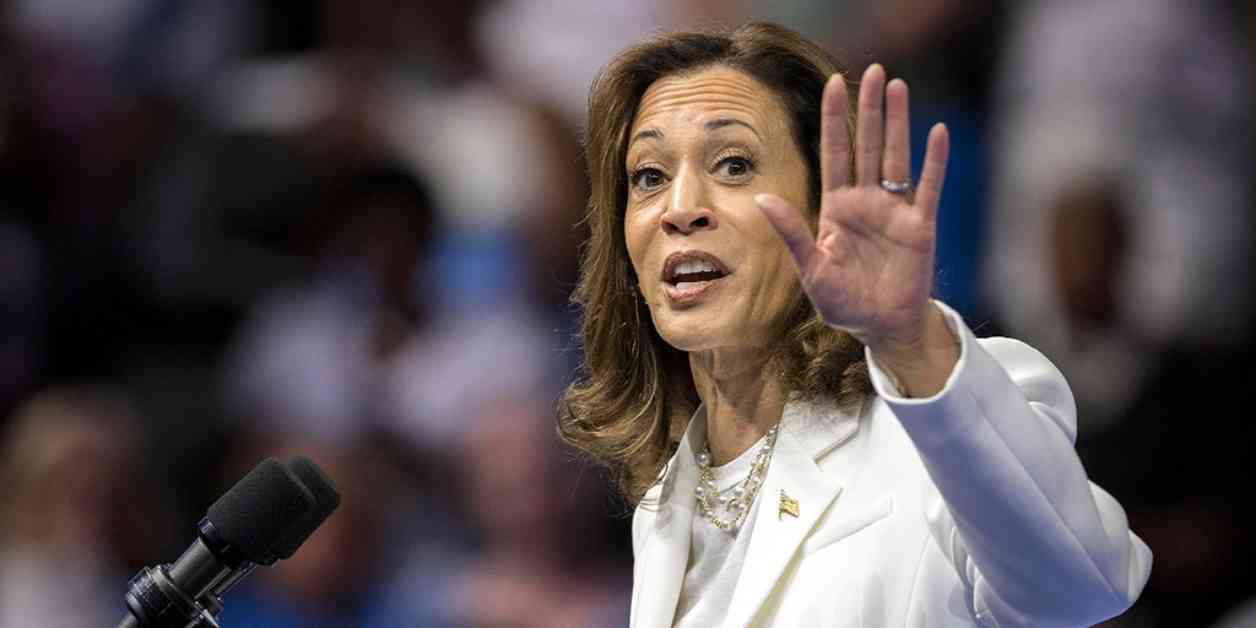Vice President Kamala Harris has gone 51 days as the presumptive, and now official, Democratic nominee for president without holding an official press conference. This lack of direct engagement with the press has raised concerns among voters and political analysts alike. As the Democratic nominee, Harris faces the biggest test of her candidacy so far: a debate with former President Trump.
The absence of formal press conferences from Harris has been a point of contention for many, with critics arguing that any candidate seeking to lead the free world should be able to handle questions from the press. Tim Young, a conservative influencer, expressed his concerns to Fox News Digital, stating, “If Kamala can’t handle real questions from the press, she absolutely can’t handle negotiations with foreign leaders.”
Harris recently broke her interview drought by sitting down for a pre-taped piece with CNN’s Dana Bash in Georgia. However, the interview was far from a traditional press conference, as Harris was joined by her running mate Tim Walz. This move drew criticism from entrepreneur Shawn Meaike, who questioned why Harris needed someone to accompany her during the interview. He argued that as a potential leader of the free world, Harris should be able to conduct interviews on her own.
During the CNN interview, Harris defended some of her policy flip-flops on issues like fracking and immigration, stating that her “values” had not changed. She was also pressed on whether she had any regrets about defending President Biden’s mental acuity during his campaign, given his decision to drop out less than a month later. Harris emphasized her desire to move on from what she referred to as the past decade, seemingly alluding to the political rise of Donald Trump.
Despite sitting for two taped radio interviews last week, the question remains as to when Harris will hold a formal press conference. Some believe that she may never do so while still a candidate. Jorge Bonilla, a Conservative Radio Libre host, expressed his belief that the media has enabled Harris’s avoidance of press conferences, allowing her to remain inaccessible and unaccountable.
Critics like Meaike and Bonilla argue that Harris’s approach to avoiding press conferences is disrespectful to the American public. They believe that as a potential leader, Harris should be willing to answer tough questions and address concerns directly. Meaike highlighted the importance of transparency and accountability in leadership, emphasizing the need for leaders to engage with the press and the public.
In contrast to Harris’s limited media availability, former President Trump has been actively engaging with the press, sitting for lengthy interviews and holding press conferences. This stark difference in approach has not gone unnoticed, with many pointing out the contrast in media accessibility between the two candidates.
Despite receiving mixed reviews for her CNN interview with Bash, where she took the majority of the questions but had Walz there for support, Harris’s lack of direct engagement with the press continues to be a topic of discussion. Some fear that the liberal media may consider the CNN interview and an upcoming ABC debate to be sufficient interview time for the campaign, overlooking the importance of regular press conferences.
In conclusion, the absence of formal press conferences from Vice President Kamala Harris raises concerns about transparency, accountability, and accessibility. As a candidate for the highest office in the land, Harris’s ability to engage with the press and the public is essential. Moving forward, it remains to be seen whether Harris will address these concerns and hold a formal press conference to directly engage with the media and voters.




